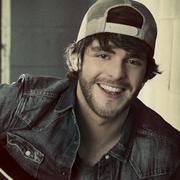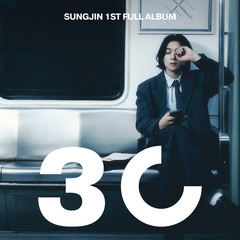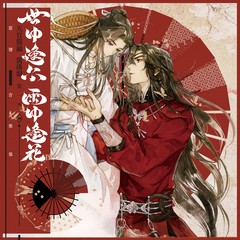Thomas Rhett
Thomas Rhett Akins, Jr. is an American country music singer known by his stage name Thomas Rhett. He is the son of singer-songwriter Rhett Akins. It’s futile to fight destiny. Plenty of people do, of course, battle against their future, but if something is truly inevitable, fighting just delays the outcome. Funny thing about destiny. If something is truly designed to occur – particularly a career choice – the path is often extraordinarily easy once the resistance is dropped. Just ask Thomas Rhett. The singer-songwriter spent most of his teens figuring out what, other than music, he could do for a career. Kinesiology, business, anatomy, media – anything but music. None of those rather ordinary pursuits seemed to work out. But a songwriting deal? Heck, Thomas Rhett stumbled into that. And nine months later, he had a song on Jason Aldean’s My Kinda Party, a double-platinum project that became the best-selling country album of 2011. A recording contract? Thomas Rhett auditioned for at least seven record companies, and every one of them wanted to sign him. Valory – the home of Reba McEntire, Brantley Gilbert, Jewel and Justin Moore – won out, and now it’s seemingly just a matter of time before the general public discovers the quirky word jumbles and infectious grooves that had Music Row salivating over Thomas Rhett’s. The one that, in retrospect, seems as if it were always supposed to happen. Even Thomas Rhett doesn’t completely understand it. “I don’t have a clue where it’s going to go or where it’ll end up, but the journey is cool enough for me,” he muses. “I’m here for the ride and to entertain people.” And entertain he does. His first single, “Something To Do With My Hands,” reveals Thomas Rhett as a solid country guy with a distinct urban streak. Other tracks from his debut show someone who’s clever enough to rhyme “Ryman” with “diamond,” who mulls chatting with Jesus over beer, who throws AC/DC hard-rock chants and Coolio hip-hop phrasing into songs that are otherwise country. It’s as if Roger Miller had been reincarnated and gone on a songwriting retreat in the ‘hood. “Country, rock and hip-hop were what I was raised on,” Thomas Rhett says. “It’s a strange combination, but it all leaks into what I write.” Thus, Thomas Rhett mixes burning slide guitar, Southern drawl and Little Feat-ish rhythms in “Whatcha Got In That Cup”; redneck lyrics, crunchy chords and a reference to hard-core rapper DMX in “All-American Middle Class White Boy”; and a magnetic brew of Robert Johnson blues, Appalachian harmonica and Common hip-hop phrasing in “Front Porch Junkie.” Odd as that blend might seem, Thomas Rhett’s twisted sonic concoction is part of a natural progression, one that saw him exposed to tons of music by a famous father whose own rocky experiences with the music business made Thomas Rhett wary of investing his talents in such an emotionally difficult vocation. Thomas’ full name – Thomas Rhett Akins Jr. – forever connects him with his dad, Rhett Akins, who earned a trio of Top 20 hits in the mid-1990s. Those songs – including the Top 5 “That Ain’t My Truck” and the No. 1 single “Don’t Get Me Started” – made an indelible impression, inspiring several other southern Georgians, such as Luke Bryan and ace songwriter Dallas Davidson, to pursue their own country ambitions. Concert tours took Rhett Akins away from home often, beginning just a year or two before Thomas Rhett enrolled in school. But there was no father-son rebellion in the Akins household. Despite his tour schedule, Dad made it a point to be there for his son’s football games. And Thomas Rhett loved his father’s music – “I was five, jamming out to his records, going to kindergarten,” he recalls. Thomas Rhett went on the road with the elder Akins, too. Sometimes his dad would bring the kid out to play drums during the encore at his shows. And there was a period when Thomas Rhett was eight or nine that he popped on stage to cover Will Smith. “I came out in a Green Bay Packers toboggan, a big shirt and baggy pants, and rapped ‘Gettin’ Jiggy Wit It,’” he remembers. There were other perks. Thomas Rhett went to Reba McEntire’s Halloween parties. And he once got help on his English homework from some guy named Blake Shelton. Seems glamorous from the outside, but the entertainment business can be ruthless. And the good times soon soured for his dad. Rhett Akins eventually rebounded, but in the meantime, that period in his dad’s career soured Thomas Rhett on that pursuit. “My whole life,” he insists, “I swore I was never going to do music.” But that destiny thing kept guiding him in that direction. For starters, Thomas Rhett took up drums during junior high in a band called the High Heeled Flip Flops. “We were a punk-rock band, there were four of us and we were terrible,” he laughs. “Our lead singer sang in a British punk accent, and we all dyed our hair black. My Uncle Eli, who does work for Zac Brown now, came into Nashville and we recorded our first record in my dad’s living room.” Thomas Rhett’s focus, though, remained on a more conventional future. He played sports in high school, and ripped up his knee in one major accident. That set his thoughts on kinesiology – the study of human movement – when he enrolled at David Lipscomb University in Nashville. He soon changed his mind about kinesiology and shifted direction – in fact, he ran through four different majors at David Lipscomb, none of which quite fit. Meanwhile, a friend had roped him into playing a frat party at Middle Tennessee State University in Murfreesboro, which led to more frat parties – at the University of Tennessee in Knoxville and the University of Georgia in Athens. In the process, he was able to mesh those seemingly disparate parts of his musical influences: country, hip-hop, classic rock and modern rock. “Frat parties can be awesome or tragic,” he says. “Those dudes just get so drunk, and they get on stage with you and take the mic from you. All of a sudden, you’re at the back of the stage and just playing so they can have a good time.” Helping them have a good time is, of course, what the gig is about. And Thomas Rhett picked up that ability in short order. He also discovered there was a whole culture of kids who’d been raised on the same improbable mix of musical cultures – kids who had been looking for someone like Thomas Rhett, or Brantley Gilbert, or Jason Aldean, who could put all those influences together. “Those are the kids that are the trend setters,” Thomas Rhett says. “Those kids are the ones downloading music on their iPod, jamming it in their car and playing it with their friends. Those people become loyal, and they want to be the people that said they found you first.” Nevertheless, Thomas Rhett didn’t take any of that music thing seriously until his dad talked him into doing a one-time show. Rhett Akins had reinvented himself quite successfully as a songwriter – in fact, he would become BMI’s Country Songwriter of the Year in 2011. And Rhett enlisted Thomas Rhett to open at a music-industry showcase for singer-songwriter Frankie Ballard. There was no pay for the gig – and Thomas Rhett got a parking ticket while loading his equipment into the venue. But it did pay off in other ways. EMI Music’s Ben Vaughn liked what he heard and asked Thomas Rhett after the show if he’d be interested in a publishing deal. “Really!? I don’t know what that is,” Thomas Rhett says. “Well, if it pays more than me laying hardwood floor, then I’m in.” In February 2010, Thomas Rhett signed with EMI and soon had his first co-writing session with his dad and Bobby Pinson, who’s written songs for Toby Keith and Sugarland. In short order, he was writing with the likes of Craig Wiseman (“Live Like You Were Dying”), Luke Laird (“Undo It”), Lee Thomas Miller (“You’re Gonna Miss This”) and Chris Stapleton (“Love’s Gonna Make It Alright”). Things happened quickly. Aldean cut Thomas Rhett’s “I Ain’t Ready To Quit” for My Kinda Party, which was released in November 2010 – just eight months after Thomas Rhett signed his publishing deal. Even then, Vaughn was already taking Thomas Rhett around Music Row to play acoustic auditions as an artist in record-company conference rooms. And they always got some interest. When he played for the Big Machine Label Group, which includes The Valory Music Co., it took only three songs before President and CEO Scott Borchetta announced he wanted Thomas Rhett on the roster. “Scott doesn’t mess around,” Thomas Rhett says. “The next day, my lawyer called and said Big Machine had made an offer.” That also gave Thomas Rhett the reins to make an album. They teamed him with producer Jay Joyce, who’s worked as a producer and/or guitarist with Eric Church, Cage The Elephant and Miranda Lambert. The results on Thomas Rhett’s debut are a rhythmic, grooving, infectious amalgam of styles that appreciates country’s roots and challenges its perceived limitations at the same time. The music was captured at Joyce’s home studio, which provided a loose, informal ambiance that found its way into the tracks. “It’s recorded in his basement,” Thomas Rhett says. “It’s dark, a couple lamps on and candles burning and incense everywhere. We had some of the best players, and it was pretty much a big jam session until we found something that worked.” The album veers from the clever wordplay of “Would Ya” to the high energy of “Something To Do With My Hands” to the playful grooves of “Front Porch Junkie” and “All-American Middle Class White Boy.” But as much as he’s about having a good time, “Beer With Jesus” – a rough-edged ballad that seeks elusive spiritual clarity – demonstrates the enormous depth that lies under all the fun stuff. That’s appropriate for Thomas Rhett, who’s discovered that music – despite his insistence on avoiding it – is a central part of his destiny. “I think I’ve been directed here for a reason,” he surmises. “I still don’t know why. I don’t know if it’s to be some big star or if it’s to make a difference in somebody’s life along the way or to make somebody’s Friday night entertaining. It doesn’t really matter. It’s a journey, and I’m learning something new every step along the way.”


 Beer Can’t Fix - Thomas Rhett&Jon Pardi
Beer Can’t Fix - Thomas Rhett&Jon Pardi
























